Acts 15:36-16:40
Retracing the Footsteps of Paul during his Second Missionary Journey
John Donne, an English poet, scholar, soldier and secretary, who later became Dean of St Paul's Cathedral in London once wrote:
No man is an island,
Entire of itself;
Every man is a piece of the continent,
A part of the main.
If a clod be washed away by the sea,
Europe is the less,
As well as if a promontory were:
As well as if a manor of thy friend's
Or of thine own were.
Any man's death diminishes me,
Because I am involved in mankind.
And therefore never send to know for whom the bell tolls;
It tolls for thee.
When attempting to retrace the footsteps of any human being, there is so much more to consider than simply what the person did or what they said. No man is an island, and this is certainly true of Paul as it is of us all. So, trying to put together a coherent retelling of his second mission journey is made difficult by the fact that there is so much to tell…Paul was a product of his time…he was shaped by what went before him as much as what lay ahead of him, and he interacted with people who had been shaped in the same way.
So, when reading about his life and when trying to understand what he addressed in his letters, it is necessary to keep this in mind as information about the ancient world in which Paul lived with its customs and practices will help not only our comprehension but also our application of the biblical texts we seek to study and employ in our faith and practice.
Ancient Greece is every bit as informative as biblical Greece – archaeology reveals a society that was far more advanced than many have thought in the past…running water, underground sewers, indoor plumbing shows us a civilization superior to that of Victorian England.
Clay pipes
Indoor bathing in the background
The military genius of generals such as the Spartan king Leonidas in the battle of Thermopylae against the Persian King Xerxes (who features in the book of Esther) in 480 BC
Thermopylae
and the expertise of the goldsmiths during the reign of Philip II of Macedon who was assassinated in 336 BC still stuns strategists and historians and metallurgists.
Golden wreath found in the tomb of Philip II
Bust of Alexander
The conquests of the Romans, beginning with the subjugation of all Italy by 200 BC, the conquering of Greece, Spain, the North African coast, much of the Middle East, modern-day France, and even the remote island of Britain led to the establishment of an empire in 27 BC, which endured for another 400 years.
Looking at the routes of Paul's travels in the Book of Acts it is possible to calculate approximately how far he travelled on his three missionary journeys, plus other journeys not mentioned in the book of Acts. The total for the biblical journeys is over 8000 km (5000 miles) on foot and 8500 km (5300 miles) by ship. At a rate of 30 km (20 miles) a day, Paul spent about 250 days, or eight months, walking.
First Missionary Journey 1200 km walking, 900 km by ship
Council of Jerusalem 1400 km walking
Second Missionary Journey 2500 km walking, 2500 km by ship
Third Missionary Journey 2800 km walking, 2030 km by ship
Journey to Rome 310 km walking, 3080 km by ship
(From: https://www.julianspriggs.co.uk/Pages/Travel)
All this was made possible because of what the Persians, the Greeks and the Romans did years before. No man is an island. Paul’s preaching and teaching were, in many ways, made possible because of seemingly unrelated historical events. God works all things together for good, Paul wrote to the Romans…even the bloody wars and methods of global expansion of greedy pagan rulers.
Now, because of time constraints, I am going to deal with some background information today and then look at how the Gospel came to Philippi only. We can go through the rest of the journey in subsequent Sundays as we follow Luke’s record of these momentous events in Acts.
Our story begins shortly after the Jerusalem Council, where Paul and Barnabas had successfully defended a no-strings-attached salvation message for the Gentiles. They had returned triumphant to their multicultural, multiethnic home-church in Antioch in modern day south-eastern Turkey. Antioch on the River Orontes, as it was called then, is itself an interesting city because it was a Hellenistic Greek city founded by Seleucus I in 300 BC. It was one of the largest and most important Greek cities of the period.
Then in Acts 15:36 we are told that Paul wished to return to the churches they had established on the first missionary journey but refused to take John Mark with them. The Greek word used to describe the “sharp disagreement” between Paul and Barnabas is “paroxumos”, a very strong word that we can translate as paroxysm, seizure, explosion, eruption. Scholars speculate over the reason why Paul reacted so strongly to the idea of taking “one who had withdrawn from them in Pamphylia” most thinking that is was a matter of unreliability, but given the outcome of this emotionally charged altercation I tend to believe that there was more than likely a theological reason. My guess is that it had something to do with the conversion of Sergius Paulus, the Roman Consul in Cyprus…Paul would not have required him to be circumcised and it is possible that this was a step too far for John Mark…remember he and Barnabas were cousins and therefore he would have had some form of Levitical background too. Whatever the reason, God once again used all things together for good as the bust-up created two missionary groups, Barnabas and John Mark going to Cyprus, Paul and Silas through Syria, Cilicia, southern Galatia, northern Asia, and over the Agean on to Macedonia.
But before we move on too quickly, Acts 15:41 alerts us to the fact that Paul had not been idle during his lengthy (anything from 8 to 14 years) stay in Tarsus…another interesting Greek city as it was known as a centre of Stoic philosophy and was also famous for tent fabric woven from black goat hair…but I digress. He seems to have been active in establishing churches in Syria and Cilicia before Barnabas went there to bring him to Antioch. Perhaps it was because of his church planting skills that Barnabas went in the first place, but that we will never know for certain.
Paul and Silas trekked on up the Taurus Mountains through the Cilician Gates and then went on westwards to Derbe, following the Via Sebaste. In Lystra, Paul added Timothy to their company after he had circumcised him. This may surprise you given Paul’s adamant position on converts not needing to be circumcised, but Paul knew that if his method of ministry to Jews first was to include his young protégé, he would have to be circumcised because he the son of a Jewish woman…meaning he was considered a Jew. How would people know whether he was circumcised or not, you might ask. Young Timothy, like Paul, was no doubt a product of his time too, and young Greek men tended to exercise and train in Gymnasiums…in the nude.
In his first letter to his protégé, Paul seems to mention Timothy’s practice of bodily training (1 Timothy 4:7b-8), but besides this locker room type exposure, there were also public baths
and lavatories.
Men sat quite literally cheek by jowl, depositing their waste in overflow water from the baths flowing beneath their nether ends, and cleansed themselves using a stick dipped in clean water flowing past their feet. Hence, apparently, the origin of the idiom, not to grasp the wrong end of the stick.
Troas was a prosperous Greek city situated on the Aegean Sea that served as the chief port of north-west Asia Minor. It had been named Alexandria Troas in memory of Alexander III of Macedon by Lysimachus in 301 BC. Julius Caesar had, at one time, considered making Troas the capital of the Roman Empire.
We are not told how the Holy Spirit directed Paul, nor are we told why. It is possible that Paul’s later decision not to go where others had preached the Gospel previously may have originated here. Syrian Orthodox tradition tells us that Peter ministered in Cappadocia, northern Galatia, Pontus and Bithynia, thus it is possible that this is why Paul was prevented from entering these territories.
Nevertheless, whatever the reason, it is in Troas that Paul meets up with the man who would later write the book of Acts. From what we piece together from other Scriptural as well as extrabiblical references, Luke was a Gentile physician. How do we know that this is where Paul met Luke? Well, because the pronoun ‘they’ used up until this point changes to ‘we’ in verse 10. From this verse on until the end of chapter 16, the author is an eyewitness to all the events he records. This is perhaps the reason why we have a much more detailed account for the events that took place in Philippi than we do for the other Greek cities Paul visited.
In a dream, God revealed to Paul that they ought to go to Macedonia, and so the missionary group, accompanied this time by Luke, crossed over to Neapolis, overnighting in the lee of the island Samothrace…an island said to be the home of the Sanctuary of the Great Gods, a place for many pagan religious ceremonies. Centuries before the group arrived in Europe, the people from the island Thasos founded Neapolis. They were shipbuilders, and they needed wood for their ships. But their search for wood took them ever further up the hills until one day they discovered gold quite by accident. Years later, when King Philip II found out about the gold, he took the town and renamed it after himself.
In 42 BC, the final battle between the forces of Mark Antony and Octavian (who later became Emperor Augustus) and Brutus and Cassius, the leaders of Julius Caesar's assassination in 44 BC, was fought at Philippi.
The battle, involving up to 200,000 men in one of the largest of the Roman civil wars, consisted of two engagements in the plain west of the ancient city of Philippi. After Mark Antony and Octavian’s victory, many of the veterans were given farm land in the area and the town was declared a Roman colony…which is important, as we shall soon see.
Archeologists help us to piece together what the city must have looked liked when Paul first arrived. As with any dig, there are various layers that reveal different periods, so it is important for us to realise that much of what can be seen today was after Paul’s time.
There were a good number of rivers supplying water to the area, so it is not easy to pinpoint the spot where the Jewish women would meet for prayer. They would meet near a river, lake, or sea because water was needed for purification washings.
The fact that there was no synagogue in the town alerts us to the fact that there were not enough Jeiwsh men there. The minimum number of males required to constitute a representative community of Israel was ten. This requirement is called a “Minyan”, a Hebrew word that means “number”.
There is an area outside the ancient town that church tradition claims is the spot where Lydia and her household was baptised…but we cannot be certain. Luke simply says that it was a spot outside the gate (he doesn’t tell us which of the three known gates) nor does he tell us which riverside.
The other was made from the root of the madder plant and was less expensive, but would still have been a good source of income for her.
The phrase “worshipper of God” was used to describe Gentile god-fearers, so it is more than likely that Lydia was not Jewish. Interestingly, Luke tells us that it was not the persuasive words of Paul’s teaching that brought her to faith, but rather that “the Lord opened her heart’. This is important as the book of Acts portrays God as the primary and ultimate actor at work in the hearts of those who hear the message of salvation. This should be comforting for us as we tell our friends and family about Jesus. We sow and water the seed, but germination and growth is God’s prerogative.
A model of what some Roman estates looked like.
Lydia’s wealth and high rank seems clear from the fact that she is said to have a household – which would have included children, slaves, and freedpersons (it is possible that Euodia and Syntyche were part of Lydia’s faith circle, either as tradeswomen themselves or as slaves, freedwomen, or employees of Lydia’s – Philippians 4:2) – and that she had an estate large enough to house four men along with the other members of the household and also be the venue for later church meetings. As no husband is mentioned, we must assume that she was either widowed, divorced, or estranged from a husband who remained in Thyatira and served as her supplier.
The incident with the girl possessed with the python spirit (often translated as a spirit of divination) is another one of those stories that begs for supplemental explanation.
There was a well-known Greek myth about a female python that guarded the entrance to a sacred spring at Delphi. This large snake was defeated by the god Apollo who, the legend tells us, would possess priestesses at Delphi who were called pythai or pythonesses.
This slave girl was apparently purchased by people who used her her mantic abilities for gain. Her shouting was unwelcome for various reasons. There were laws about new teachings about new gods especially if this new god appeared to usurp the divinity of the emperor and she was no doubt attracting a lot of attention. Also, it seems the definite article is missing from the sentence, so she was misleading the people – she claimed that they were declaring ‘a way of salvation’ not the way. It is also possible that this statement was the reason why the Philippian jailer asked “what must I do to be saved?” But more on that later…
Note that the exorcism did not involve any form of pyrotechnics. Paul simply commanded the spirit to leave in the name of Jesus Christ and it left. No holy water, no crucifixes, no incantations, no shouting or frothing at the mouth. Just the name of Jesus.
But this brought Paul into conflict with wealthy and powerful members of the town who seized him and brought him to a raised podium or bema that can still be seen on the northwest side of the Forum. This unpleasantness is nothing new and unfortunately still happens today. Selfish gain and monetary issues rather than true concern for religious sensibilities are often behind conflicts.
Now, there are several things to note here. First, Paul’s accusers play the race card. These men are Jews, they say. Anti-Jewish sentiments were widespread those days as can be seen in several statements made by contemporary writers like Tacitus and Philostratus. The Emperor Claudius had also expelled the Jews from Rome likely some time recently before Paul arrived in Europe because of arguments about someone named Christus, which many scholars believe is a reference to Jesus.
Second, they accuse them of disturbing the peace. This was an extremely serious charge as an empire as large as Rome was ever vigilant of even the most minor of disturbances. It was especially dangerous as Philippi had been granted special status of being a Roman Colony. So, the magistrates would have been anxious not to upset the political applecart, so to speak.
Third, as it was forbidden to practice or advocate any unapproved religion the charge of “adocating customs unlawful to us Romans (notice the use of Romans, not Greeks or any other nation) to accept or practice” was probably the last straw. The sudden sentencing and punishment without trial or even allowing the defendents to defend themselves indicates the emotionally charged and chaotic atmosphere. Luke tells us that Paul and Silas were stripped naked, beaten severely with rods, and not only thrown into the inner cell (the modern equivalent of maximum security), but their feet were fastened in the stocks. From what I’ve read about these so-called stocks, they were used as a further form of torture as the jailer would spread the legs of the prisoner as far apart as possible to cause the most discomfort.
A picture of the traditional site of the jail, but most archeaologists todfay believe that there is no evidence for this claim.
And yet…Paul and Silas pray and sing praises to God, no doubt with words that explain the way of salvation through Jesus. This worship session is interuppted by a sudden powerful earthquake that damages the prison enough to allow the possible escape of all the prisoners – an escape prevented by Paul. Now, earthquakes were often seen as acts of the gods, so you can imagine what was going through the mind of the jailer when he came running out of his home! His attempted suicide is not strange in his culture as it was a better alternative to the shame of failure or of being tortured and put to death for having allowed prisoners to escape (see Acts 12:19). Plus, he may have heard what the slave girl had said earlier as she had proclaimed her message loudly and for many days, so his question may reflect what she had said about salvation. It is not unlikely that, for a moment, he might have thought that Paul and Silas were gods! Whatever he may have thought or meant doesn’t really matter as Paul led him and his household to Jesus that morning. The mutual washing is particularly poignant…the jailer washing their wounds and Paul washing them in the waters of baptism.
But the story did not end there. Come daylight, when the magistrates ordered the jailer to release them, Paul and Silas informed them that they had beaten and imprisoned Roman citizens. We learn from Cicero that: “To bind a Roman citizen is a crime, to flog him is an abomination , to slay him is almost an act of murder.” (Against Verres 2.5.66.170) Falsely claiming to be a Roman citizen was equally serious a crime and could result in execution. (Suetonius, Claudius 25.3) So, it would be unlikely that Paul would make such a claim after he had already served his sentence.
Now there were three ways to gain Roman citizenship. One way was to receive it as a reward after special or lenghty service to Rome, another was to buy it at great cost (as the Roman commander in Jersusalem in Acts 22:28), or you could be born a citizen as was the case with Paul (also Acts 22:28). We don’t know why Paul did not raise the citizenship claim earlier. It could be because of the chaotic situation before the bema or it could be that he feared it might somehow damage the fledgling church in the town, but, here again, we see how God works even this awful and shameful stituation for good. These magistrates would think twice before dealing with accusations against the believers in Philippi in future. The highest ranking officials in the town quite literally come, cap in hand, begging them to leave….probably because their ongoing presence would expose the error of their judgement.
But Paul and Silas now call the shots and do not leave until they have encouraged the believers gathered at Lydia’s home. It is interesting to see that this church continued to support Paul’s missionary endavors by sending him funds on several occassions while he was in Thessalonica (Philippians 4:16), Corinth (2 Corinthians 11:9), and later in Rome (Philippians 1:5, 2:25, 4”15-16, 18) and they also contributed generously to the collection for the churches in Judea (2 Corinthians 8:1-5).
Luke stayed behind in Philippi when Paul, Silas, and Timothy set off along the Via Egnatia for Thessalonica. We don’t know why. Some have speculated that he was romantically involved with Lydia, that he played a leading role in the church, or that he stayed to begin compiling his own story about the Gospel and its advance.
So, next week, God willing, we will continue along the Via Egnatia to Thessalonica as well as leave the main road to visit a place named Berea.What we have seen so far in our examination of Paul’s second missionary journey is that God truly does work all things…all things…things secular as well as things sacred…things done by bloodthirsty, greedy, pagan rulers…things taught by pagan witches and druids and philosophers…God works all things together for good for those who love him and who are called according to his purpose.
So be encouraged in your faithful walk with him. Even the most painful, the most random, the most confusing events of your life are in his hands as he continues to direct your footsteps.
No man is an island. We are all shaped and molded by what happens around us – even what has happened before us – but ultimately it is God who shapes us all…past, present, and future.
Shall we pray?
© Johanness W H van der Bijl 2024


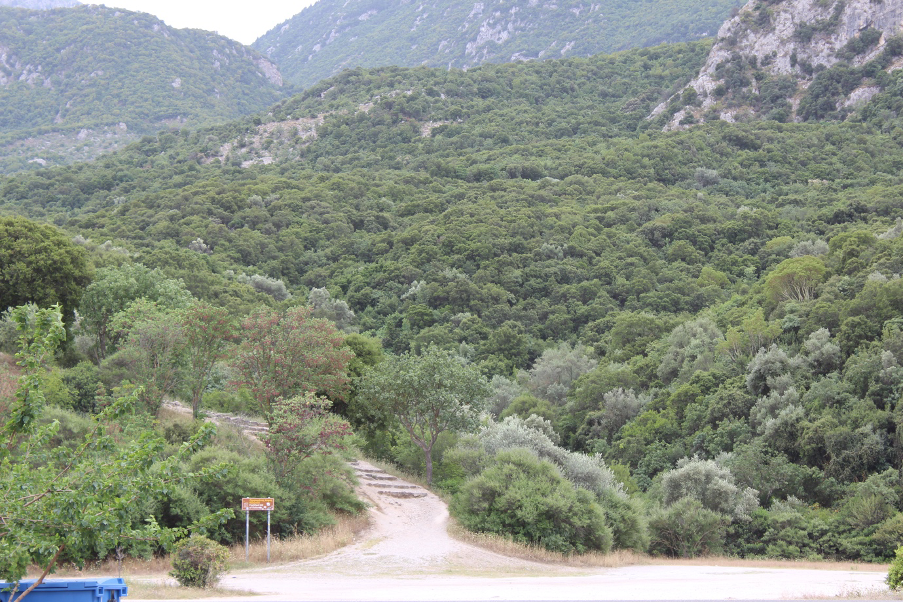

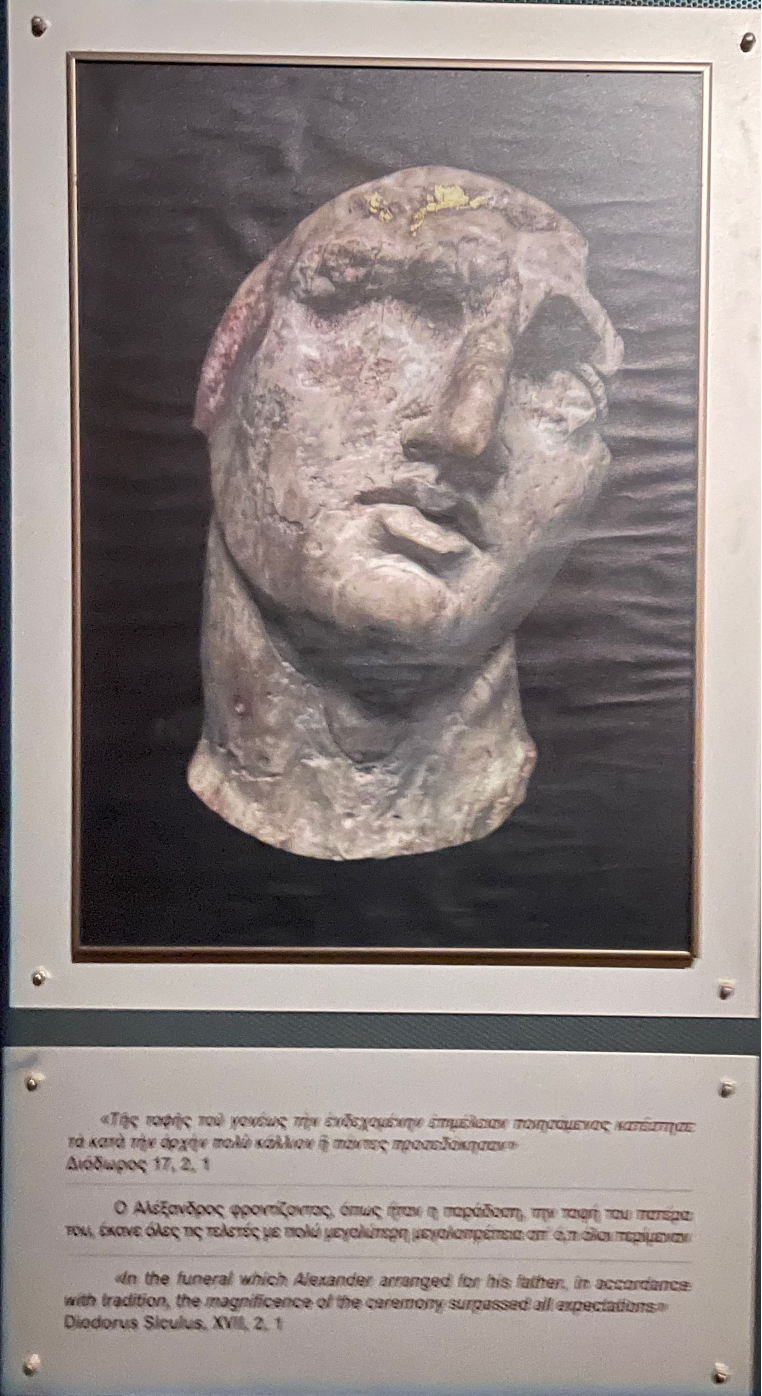


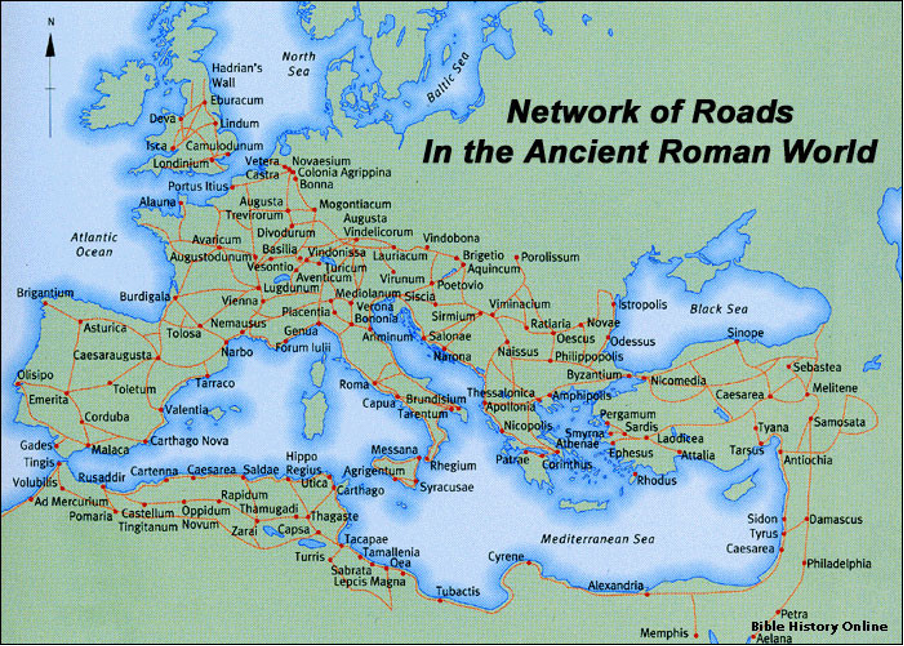

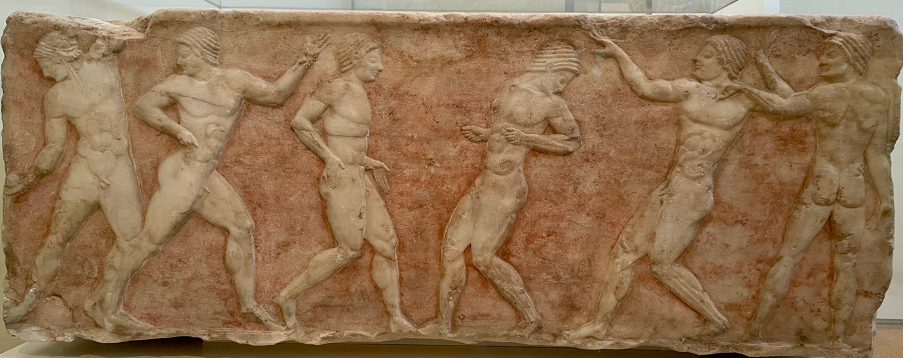




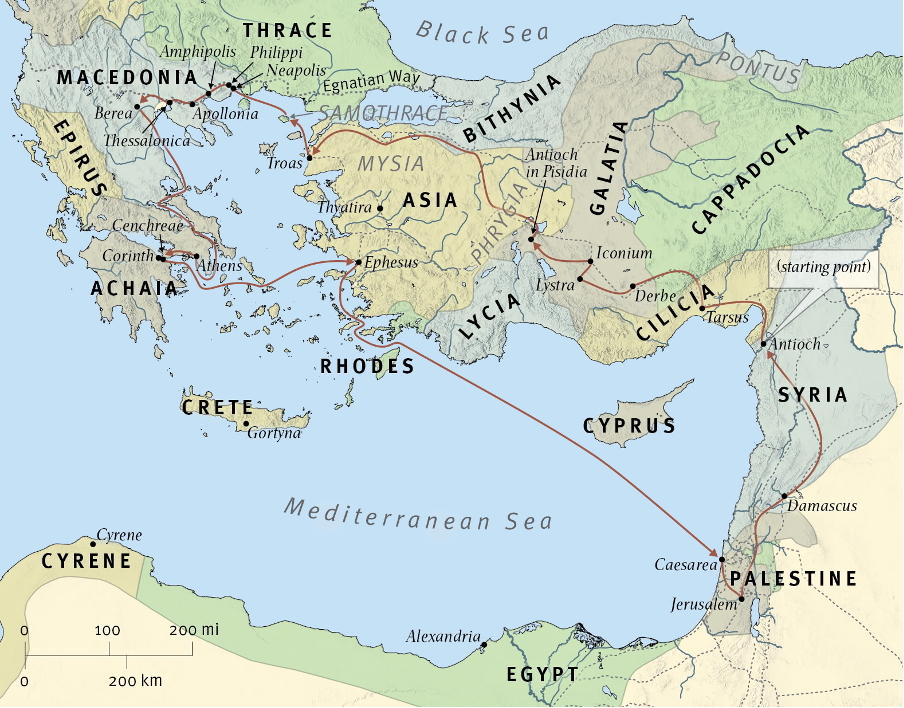
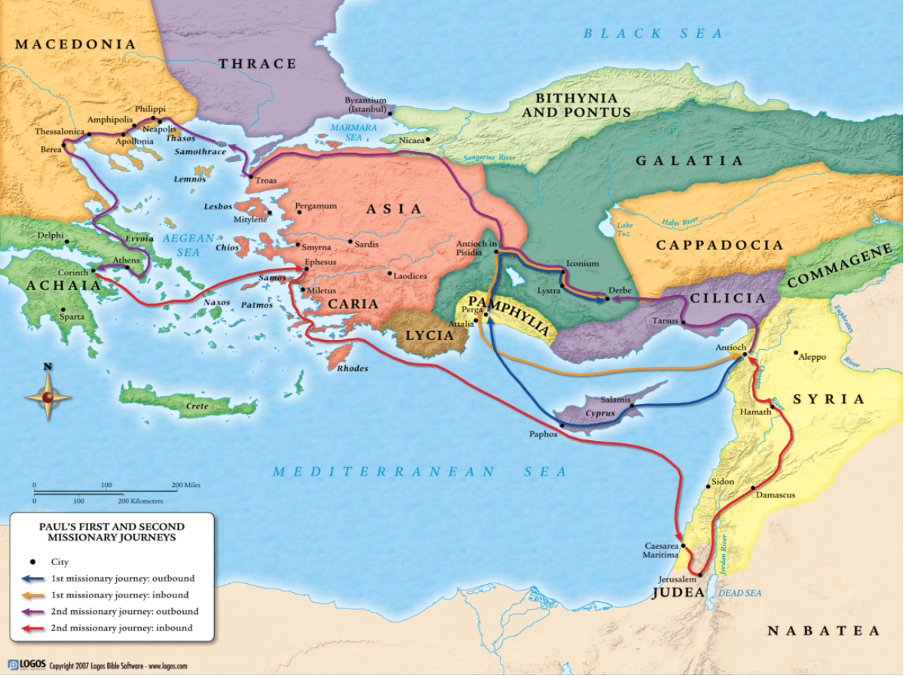



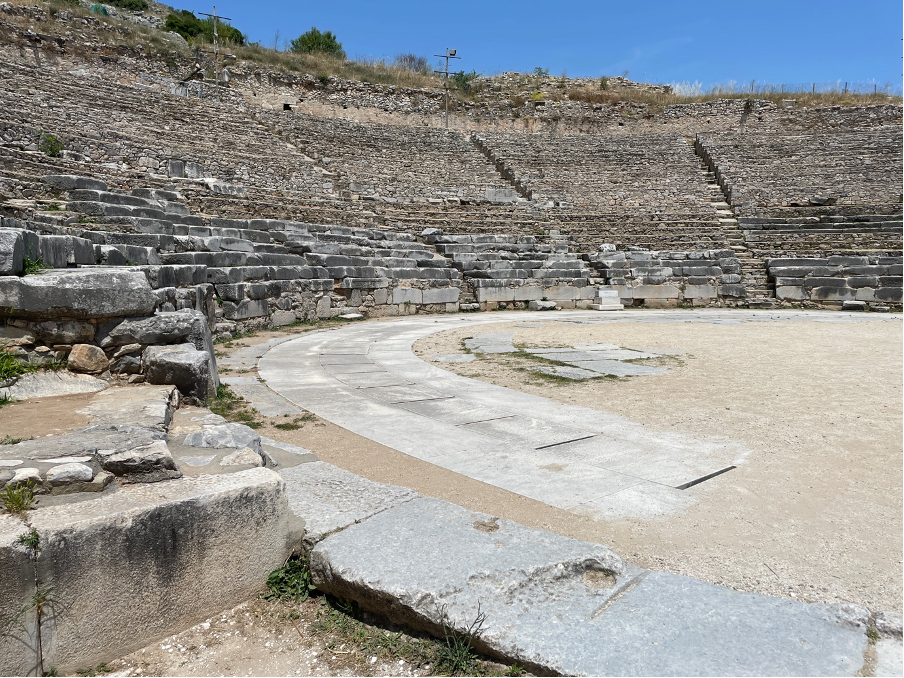






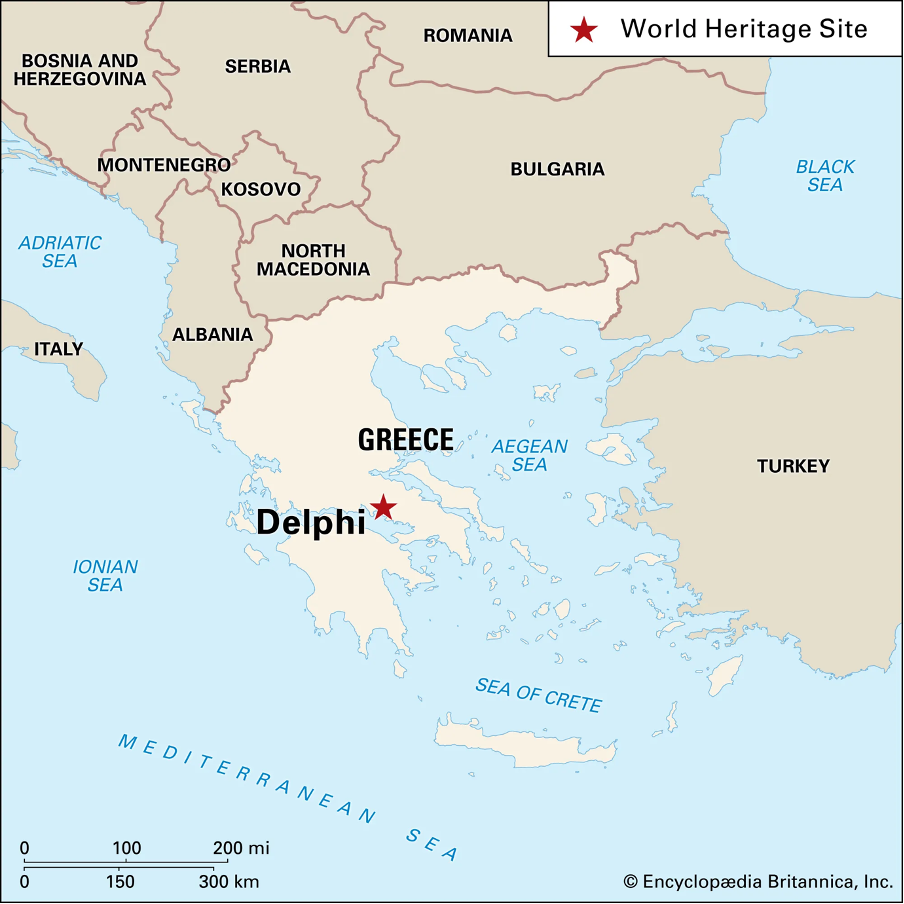



Johann the directions God takes us in are often not clear to us. Today God has been showing me that the path though prepared from time immemorial has a purpose we can not begin to understand. until God gives us the marching orders and the words His own to speak. I love how you have given after the fact views of the preparations. Asking that we always should stand ready to do what God intends even if it is not the plan we thought we would follow. Hated missing Peeps today but God had me on a path I felt I must remain on. Have been given an assignment to contact a school that has I am told satanic activity to be a location for AYF to present a program in September. Know the path has already been paved. Pray I am in tune enough to see the directions and not stray into my will instead of the Will of God. Even you blog is part of the order I have been given for today. Hallelujah!!!!!
ReplyDelete